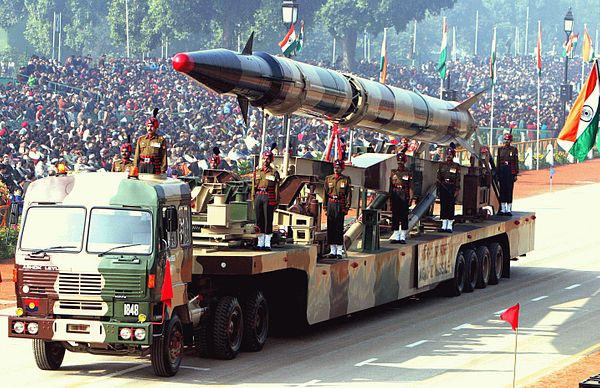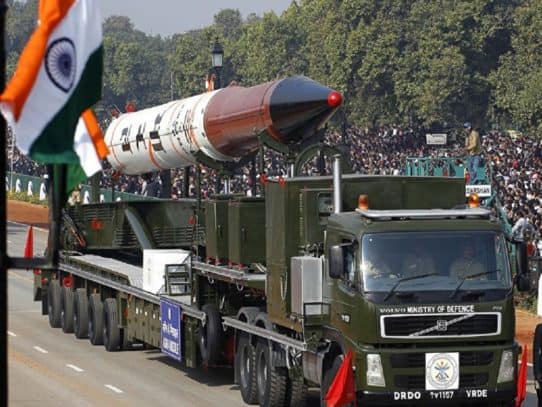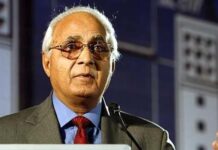India conducted five nuclear tests and became a nuclear weapon state during Atal Bihari Vajpayee tenure as a prime minister in 1998. India adopted this policy after its second nuclear tests, Pokhran – ll, in 1998. In August 1999, the Indian Government released a draft of doctrines which asserts that :
- India will only attack the enemy with nuclear weapons when they are attacked first.
-
No nuclear weapon will be used against non – nuclear states.
- If some country uses, then India’s retaliation will be massive.

There have been controversies regarding this Doctrine. Like, Late Manohar Parrikar had questioned as to why should we wait for the first attack from the adversaries. And even recently, our Defense Minister, Sri Rajnath Singh said that there could be changes in the Doctrine in the future depending upon the circumstances. As it is a Doctrine, that means a guideline for a nation. It is not a strict policy so, it could change easily if conditions allow.
One could see this Doctrine holding an ethical interest of nuclear disarmament in global politics. India’s no first use Policy was dictated not by passivity or idealism but a deep realism, an understanding of the Limited purpose that Nuclear weapon power holds. It was the result of global experience by India’s strategic thinkers. The central idea behind India’s NFU was the recognition that nuclear weapons served only a limited purpose of ensuring National survival. Time and again Pakistan threatens India in the name of nuclear weaponry. Now, let’s understand that there exist two types of Nuclear weapons :

Strategic and Tactical. Strategic weapons are far more dangerous than the Tactical one. And, Pakistan owns Tactical nuclear weapons. So, if they use it against India, India will lose 1%, but as per the policy, that if someone attacks on us and our retaliation will be massive. Ultimately, India’s attack will be 10 times massive, and it holds the capacity to destroy the whole of Pakistan. This is the basic idea behind why wouldn’t Pakistan use its nuclear power.
But, why should we just consider Pakistan? European countries like Russia, USA, and others do not have any such policies. Though India holds the Nuclear Triad, we could retaliate(as per the policy) only when we are left in the condition of survivability after the first attack( if any).
Some find this policy morally and ethically correct and also in favour of human rights. Some find it rationally incorrect. India has already attained greatness by signing peace accords with the nation but still ended up seeking help from the UN in terrorism-related matters; hence, one should not wait for retaliation.
Though we know that, a nuclear attack is not going to happen at least in the near future because every country knows that it will lead to massive destruction of capital as well as of resources of a particular region. Today, the primary agenda of no first use policy of India is to indicate the massive destruction capability of nu.clear power so the leading central economies of Asia won’t change this policy. It is only used as deterrence, not as a weapon.

Till now, it was indicating our ‘defensive’ foreign policy. But the statement of Rajnath Singh only signals Pakistan of New India, which can adopt the policy of defensive offences. Till now, Pakistan used empty threats in the name of nu.clear weapons, but after Balakot, India has given a strong message of the changed policy. It is all about ethics, and only ethics and humanity need to be preserved to save this world and make it prosperous. In the current scenario, the NFU policy has nothing to do with national security.
















































